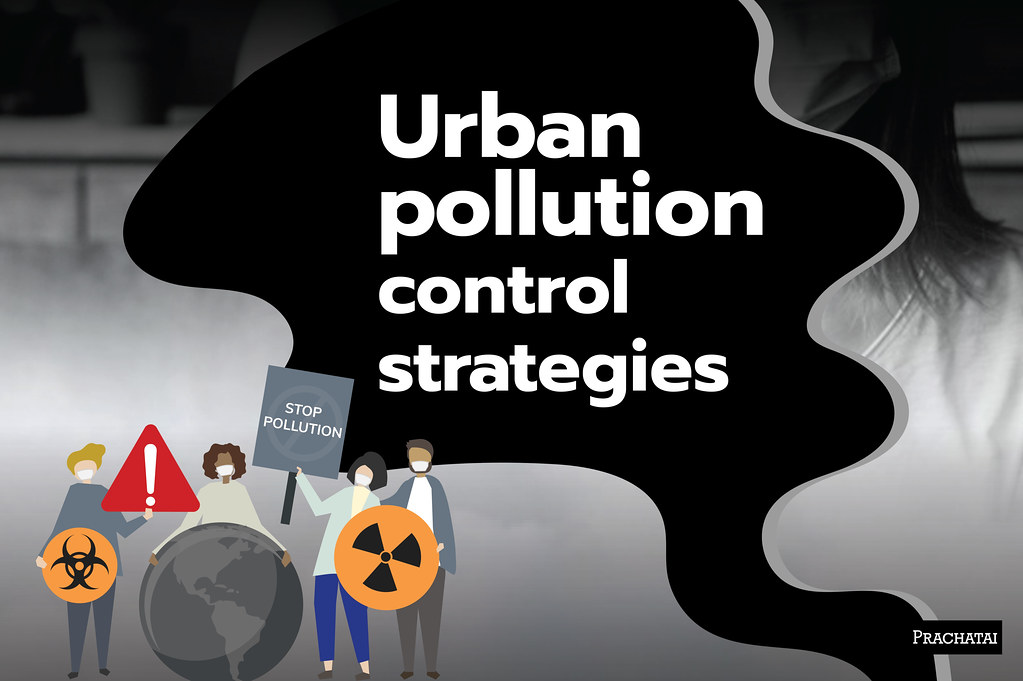
In comparison to other countries, the Thai government has not been very effective in dealing with Bangkok's air pollution issue, relying on temporary solutions to what seems to be a long-term problem rather than tackling the structural issues at root. While different cities around the world facing or have faced similar problems has come up with ways of dealing with air pollution that target its cause.
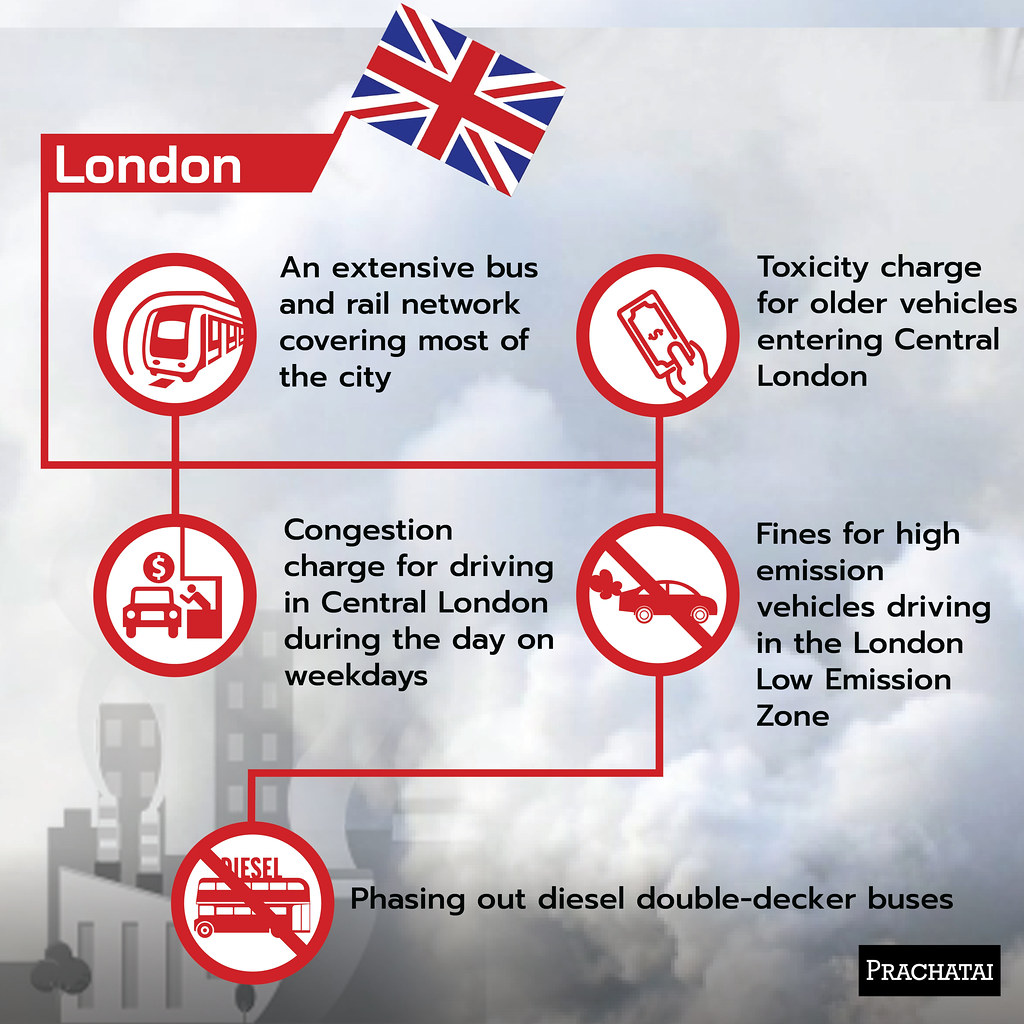
London
- An extensive underground and bus network covering most of the city
- Toxicity charge for older vehicles entering Central London
- Congestion charge for vehicles entering the Central London Congestion Charge Zone between 7 AM and 6 PM from Monday – Friday
- Vehicles that do not meet Low Emission Zone standards can either try to meet them, or pay a fine for entering the London Low Emission Zone
- Phasing out diesel doubledecker buses
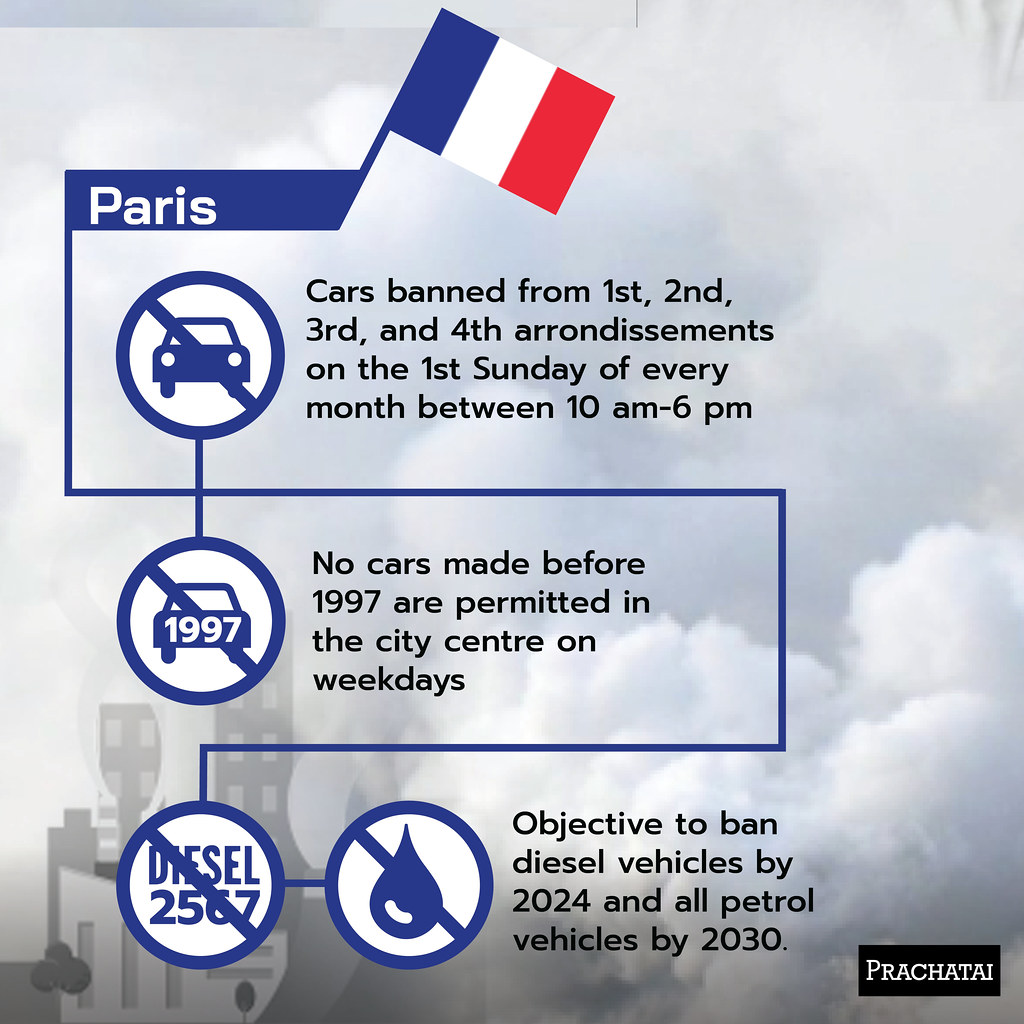
Paris
- Cars banned from 1st, 2nd, 3rd, and 4th arrondissements on the 1st Sunday of every month between 10 am – 6 pm, with the exception of certain major roads
- No cars made before 1997 are permitted in the city centre on weekdays
- Objective to ban diesel vehicles by 2024 and all petrol vehicles by 2030. Also plans to double bike lanes and limit selected streets to electric cars by 2020
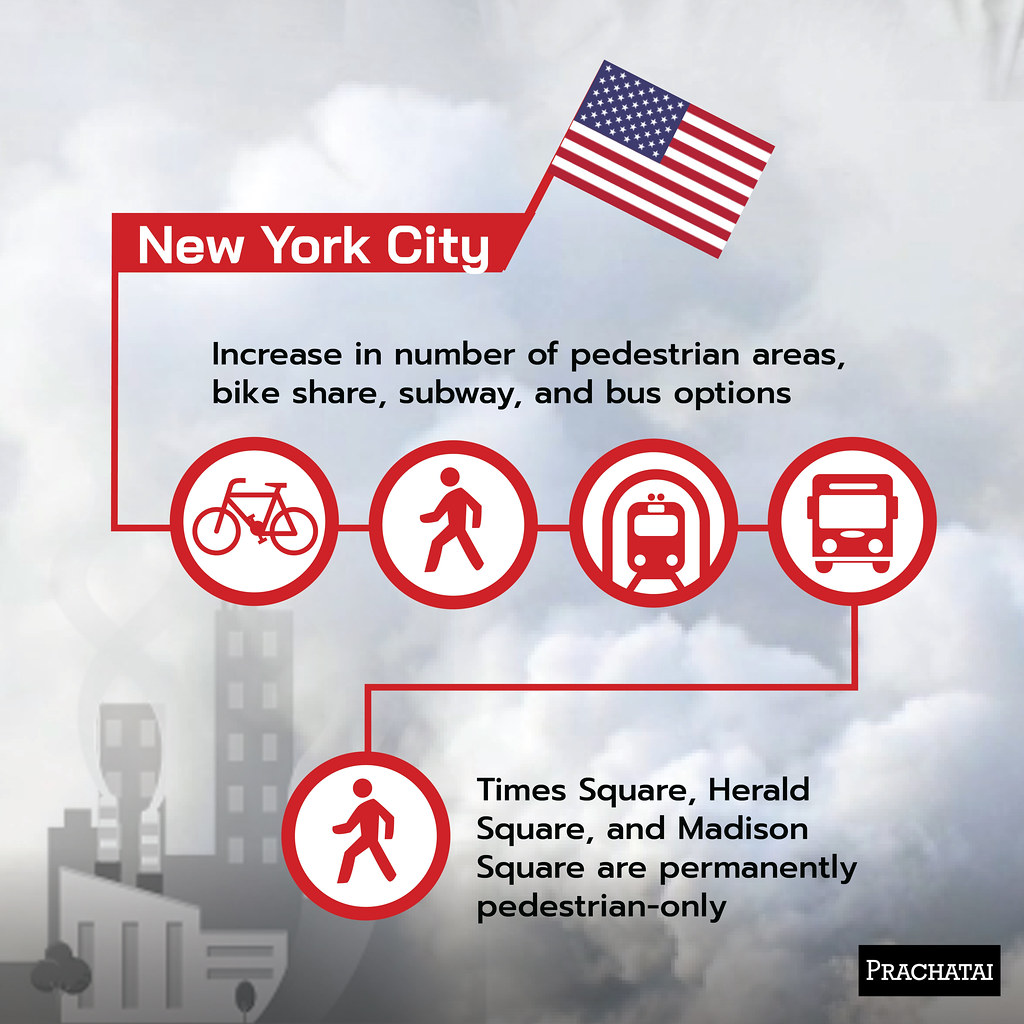
New York City
- Increase in number of pedestrian areas, bike share, subway, and bus options
- Times Square, Herald Square, and Madison Square are permanently pedestrianonly
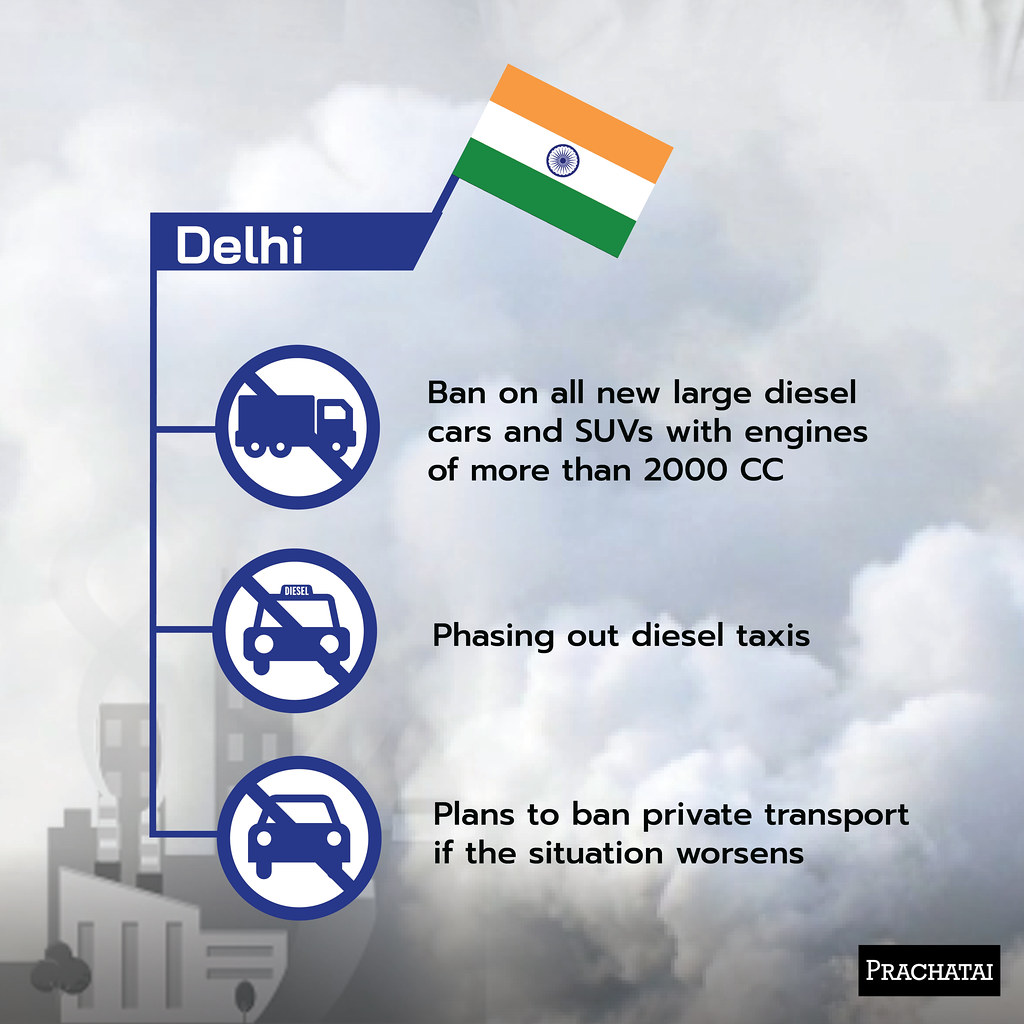
Delhi
- Ban on all new large diesel cars and SUVs with engines of more than 2000 CC
- Phasing out diesel taxis
- Plans to ban private transport if the situation worsens
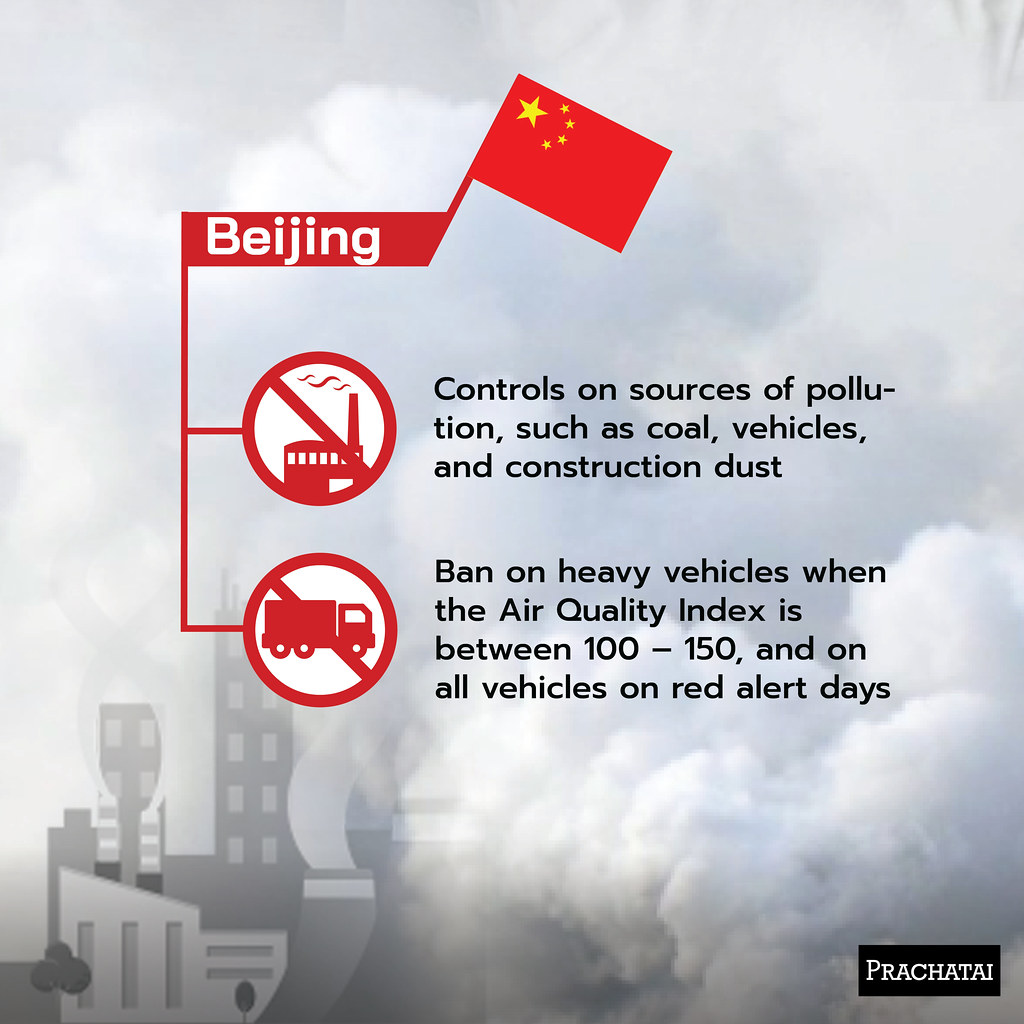
Beijing
- Controls on sources of pollution, such as coal, vehicles, and construction dust
- Ban on heavy vehicles when the Air Quality Index is between 100 – 150, and on all vehicles, both government and private, on red alert days
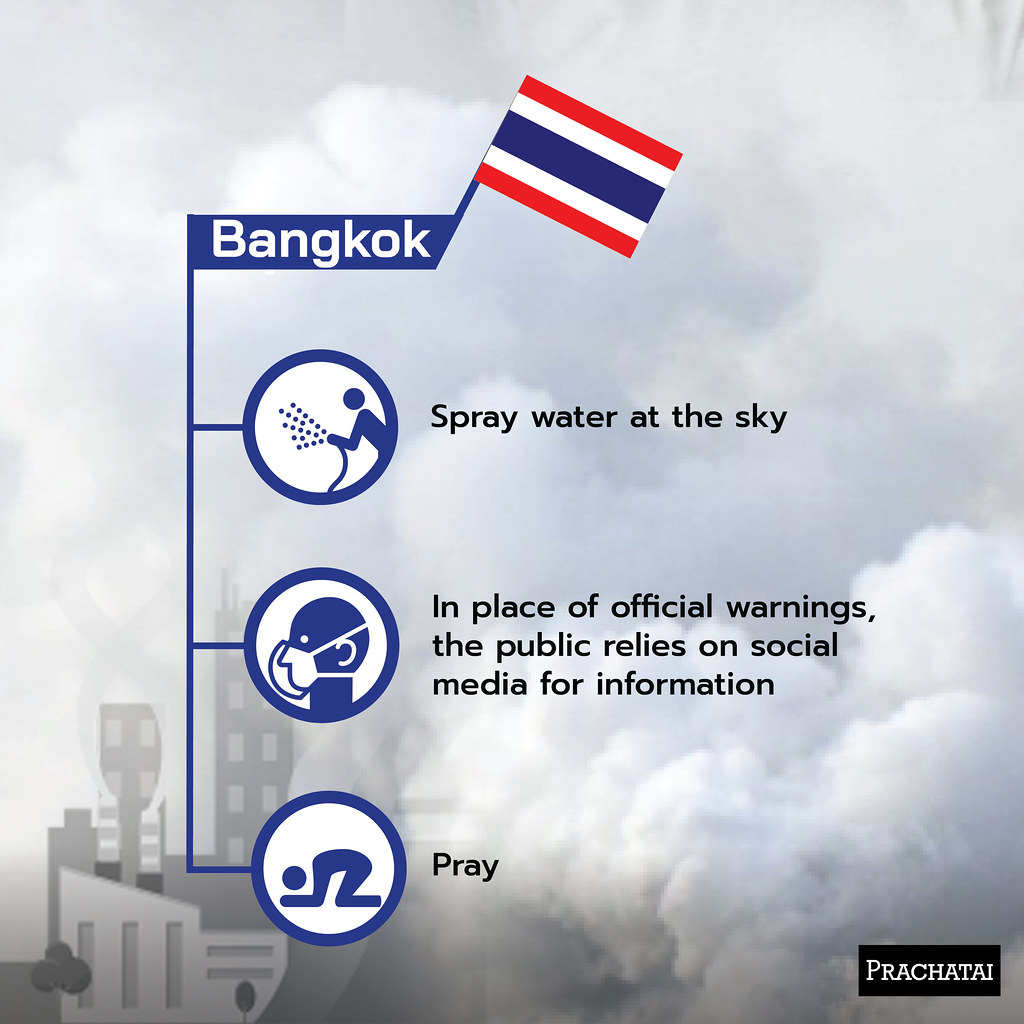
Bangkok
- Spray water at the sky, especially close to air quality measuring station
- In place of official warnings, the public relies on social media for information about the daily AQI and remind each other to wear masks

Since 2007, Prachatai English has been covering underreported issues in Thailand, especially about democratization and human rights, despite the risk and pressure from the law and the authorities. However, with only 2 full-time reporters and increasing annual operating costs, keeping our work going is a challenge. Your support will ensure we stay a professional media source and be able to expand our team to meet the challenges and deliver timely and in-depth reporting.
• Simple steps to support Prachatai English
1. Bank transfer to account “โครงการหนังสือพิมพ์อินเทอร์เน็ต ประชาไท” or “Prachatai Online Newspaper” 091-0-21689-4, Krungthai Bank
2. Or, Transfer money via Paypal, to e-mail address: [email protected], please leave a comment on the transaction as “For Prachatai English”
